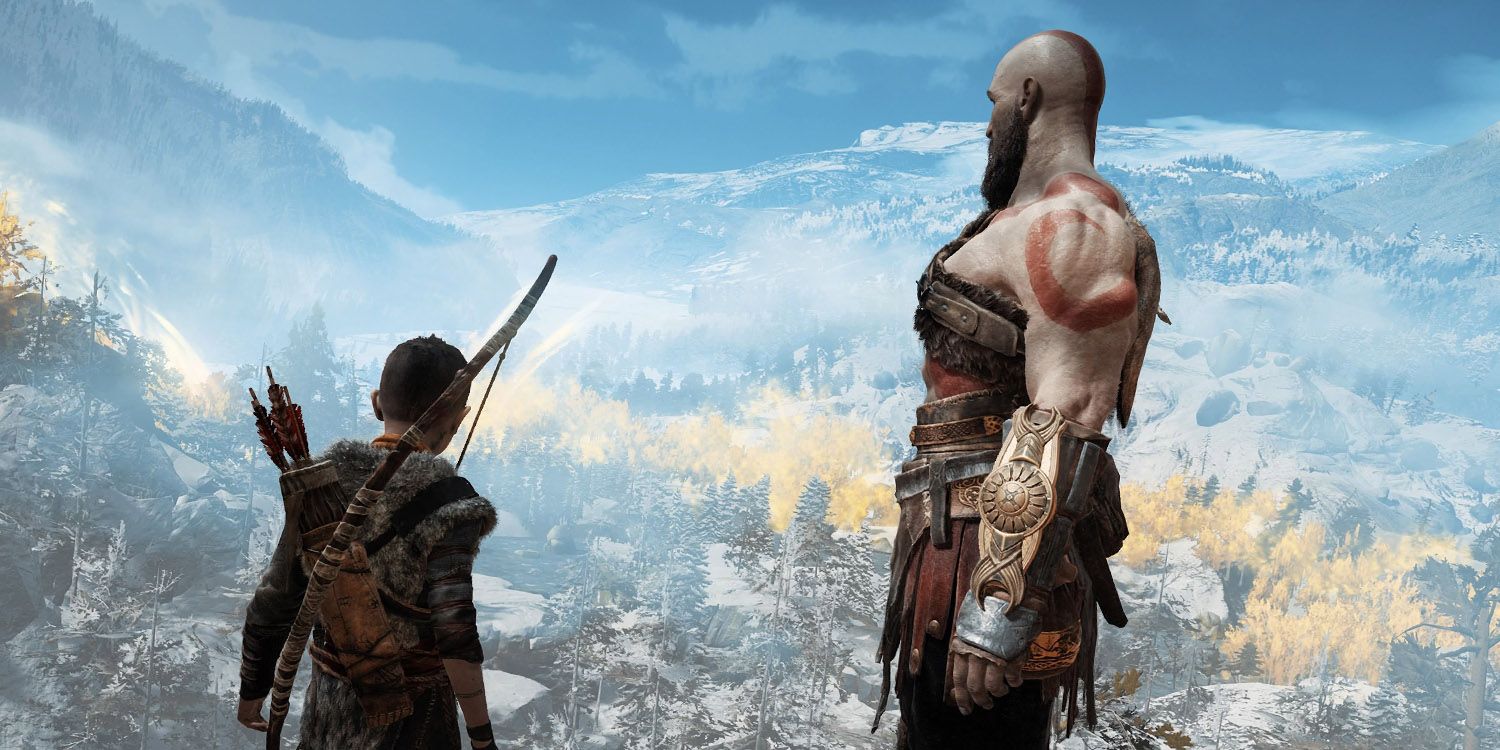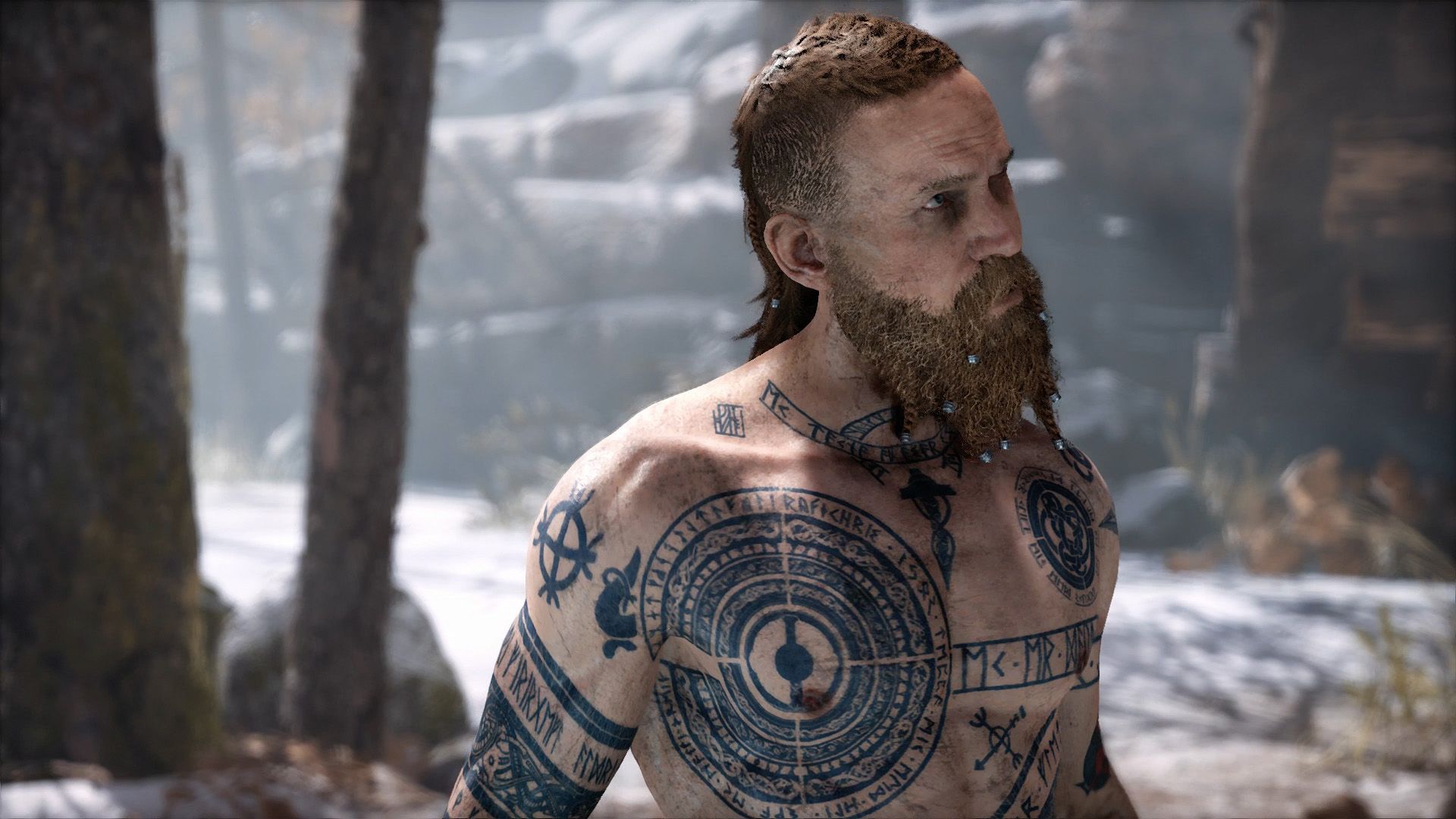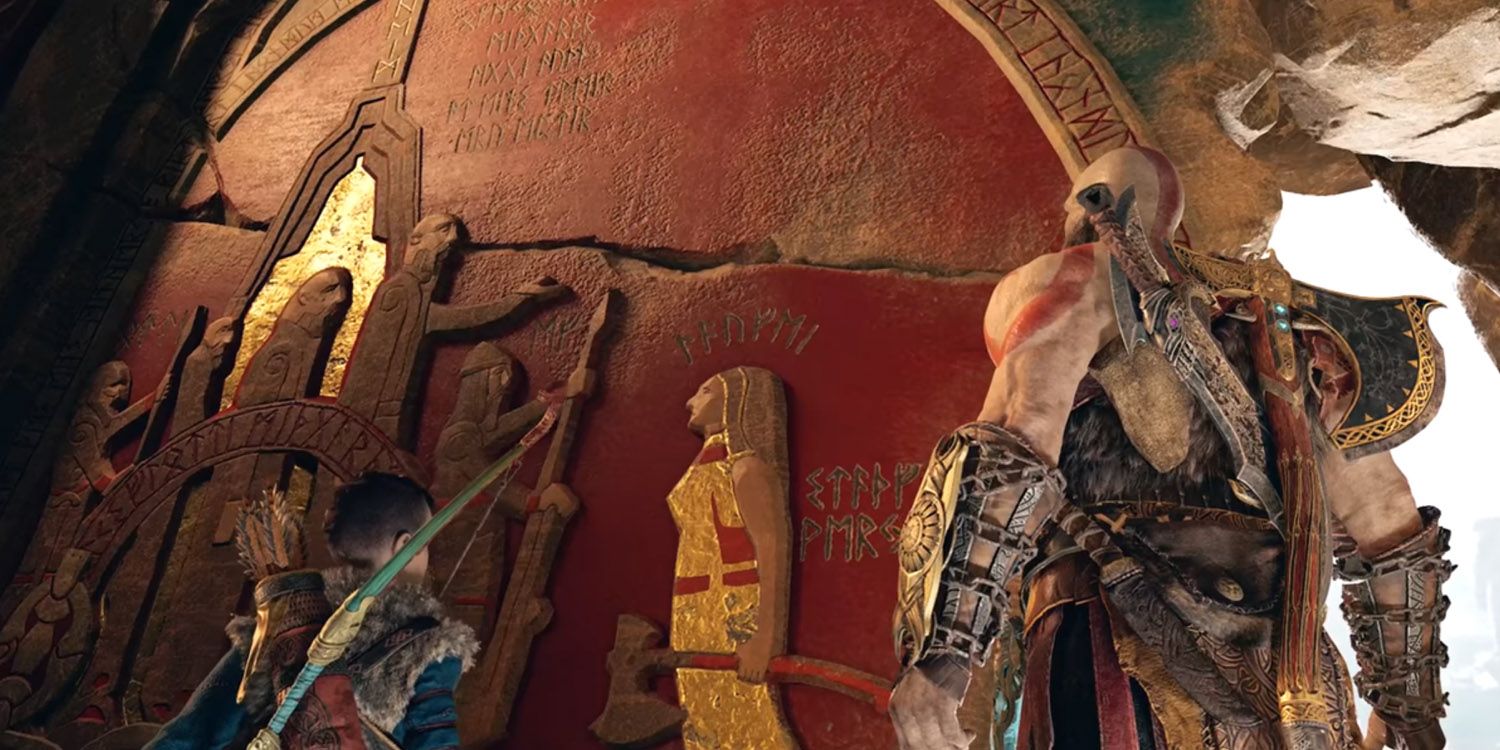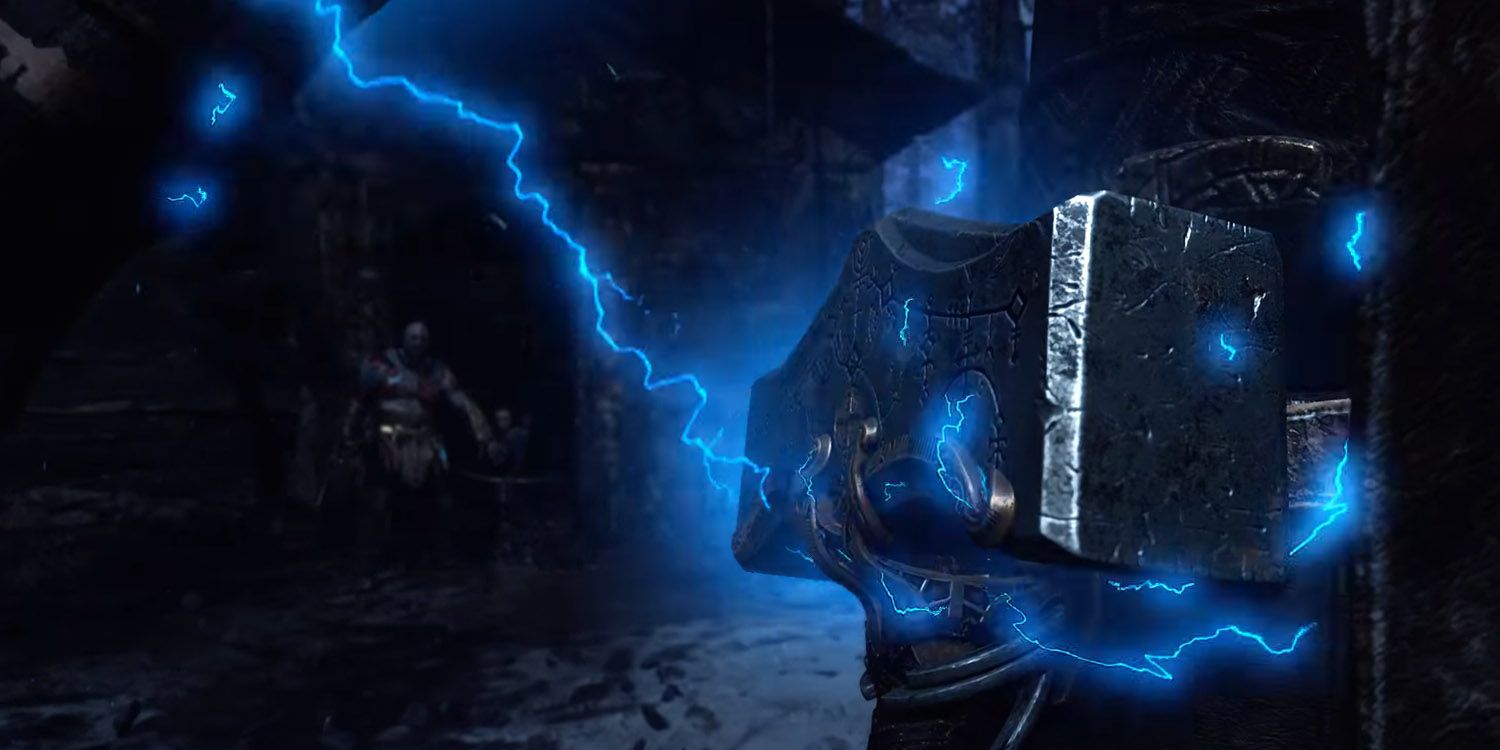With the release of God of War on PC, many people may be trying out the game for the first time. Sony Santa Monica Studio quasi-relaunched the God of War franchise in an all-new setting, with a different playstyle, and in adding a secondary character protagonist. God of War (2018) - which could have been called God of War 4 - not only pits Kratos and his son Atreus against the gods, creatures, and mystical settings of Norse Mythology, but it embeds them within it. For those looking for an explanation to God of War's ending, here's everything to know.
[Warning: Spoilers for God of War (2018) are below.]
God of War begins by setting players out on a personal quest to lay the ashes of Kratos' lover and Atreus' mother at the top of the tallest mountain. Before they can set out on this dangerous journey, they're interrupted by "The Stranger" who instigates a fight with Kratos. The Stranger is seemingly invincible, feels no pain, and is a Norse god. He's the main antagonist of sorts who's after Kratos the entire game - he's actually Baldur, a son of Odin of Norse mythology.
So, who's the mysterious, friendly witch who knows more than she lets on but who helps Kratos and Atreus? She's Freya, another God of War antagonist and key figure of Norse mythology. Freya is actually a god too, once the leader of the Vanir. Kratos and Atreus take Mimir's head to Freya to be resurrected (Mimir asks Kratos to kill him and do this since he was being trapped and tortured by Odin).
The Death of Baldur & Freya's Curse In God Of War (2018)
Freya was the wife of Odin and is the mother of Baldur, and just like in Norse lore, she has used magic to protect her son Baldur against anything from Earth except for one basic, unexpected thing: mistletoe. It is for this reason Baldur is seeking Kratos, to seek pain and death, and he believes that thanks to Odin. Freya notices the special mistletoe arrows that were a gift to Atreus from Sindri (God of War's dwarf merchant) during Mimir's resurrection sequence and is immediately alarmed and shocked, demanding that Atreus burn any like this should Atreus find more. This is because these arrows can kill Baldur.
Freya may have burned Atreus' arrows but there's still mistletoe on Atreus' quiver that Baldur comes into contact with when punching Atreus. Later in this final God of War boss fight with Baldur, Kratos beats him but Atreus convinces Kratos to let him go. Baldur then confronts his mother, Freya, lambasting her for interfering with his life and cursing him. He tells her he'll never forgive her and she seems willing to die to make it right. Baldur attacks, strangling Freya, and Kratos steps in to end the "cycle" proclaiming that he "must be better" and snaps Baldur's neck, thinking he was doing the right thing.
However, Freya wanted to die and swears vengeance against Kratos. There's a reason she cursed Baldur to life eternal and why she was willing to die. It's here where Kratos spills his true backstory (summarizing the original God of War games trilogy) to his son - he's from Sparta, he traded his soul to a god and massacred many, including his father. Atreus ponders if this is all gods are good for (killing family) but Kratos vows that they can be better. However, Kratos doesn't know the bigger picture and Baldur's death brings about Ragnarok sooner, as suggested by Mimir and with a few other hints earlier in the game. Baldur's death moves forward Ragnarok by 100 winters, although time in these realms can be a little abstract.
The Frost Giant Prophecy Of Loki Is Revealed In God Of War's Ending
With Baldur dead, and Freya gone, Kratos and Atreus head to the top of the snowy mountain in Jotunheim to complete their quest as the last wish of Faye. As they arrive at the structure at its peak a mural on the wall is revealed depicting Atreus mother with the Leviathan Axe speaking with giants. The art depicts the story of this God of War game, from Kratos and Atreus first meeting the world serpent and the dragon in the mountain to the stone mason and the just-finished battle against Baldur. It's Atreus' story foretold by the giants. Kratos wasn't the only parent keeping secrets as it turns out. Atreus' mother was a giant, so Atreus is part-giant.
Faye had sent them on this quest to the mountain, knowing they'd find this, knowing how this journey would play out. It was the prophecy of Loki. Atreus is Loki, the original name Faye had for Atreus, as Kratos reveals. Kratos also noticed one additional piece of art on the wall that Atreus missed before they spread out Faye's ashes over the valley of the dead giants and it depicts a dead Kratos in the arms of what could be a larger, older Atreus. There's something, like a spirit, connecting their mouths like a snake in the air. Does Loki resurrect Kratos or does Kratos' spirit transfer to Atreus/Loki? Or is it something else entirely attacking them both? This is something that will surely play out in the next game, God of War Ragnarok.
How God Of War's Ending Sets Up God Of War: Ragnarok
God of War Ragnarok has a lot to build from. Odin is the big bad of this game so to speak. He's never seen but it's his family and minions who players must battle. And this includes God of War's version of Thor, who shows up at the very end of the game as a teaser for the sequel after Kratos and Atreus head home. Players have already beaten his brother Baldur and Thor's sons Magni and Modi, so he's not going to be happy. Early teases for Ragnarok have also strongly suggested Thor will be a major villain in the sequel.
That tease and the mural at the end of God of War are quite foreboding to what will come next in sequels since this prophecy of Ragnarok is now begun. This great battle also includes the death of not only Odin and Thor - among other Norse figures - but also Loki in mythology. Since Atreus is Loki and is now known as the son of Kratos, it will be interesting to see how these events play out. It's clear God of War isn't sticking strictly to Norse myth and is taking some liberties, but it remains to be seen how closely God of War Ragnarok sticks to its source material.
The prophecy foretold in Jutunheim revealed in God of War's ending all came true, so players should expect Ragnarok to occur - unless Kratos (and players) can take on destiny itself. This makes one wonder how different the game would have been if Atreus had been cut from God of War, a development decision that almost become a reality. Still, the ending to God of War should have players plenty excited for the upcoming sequel.




